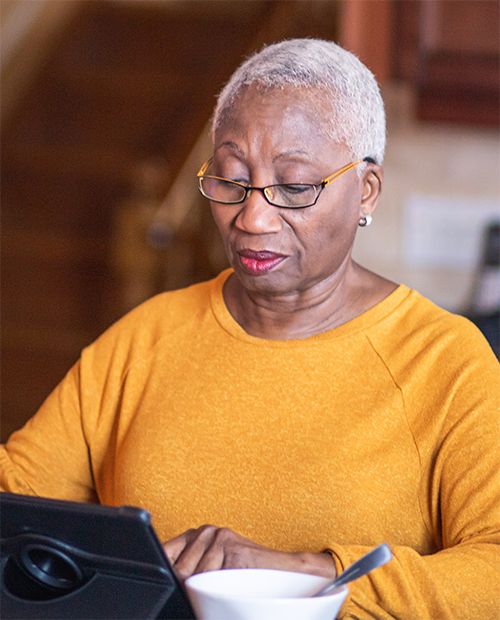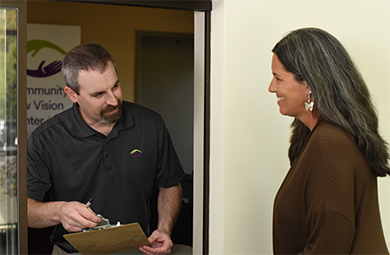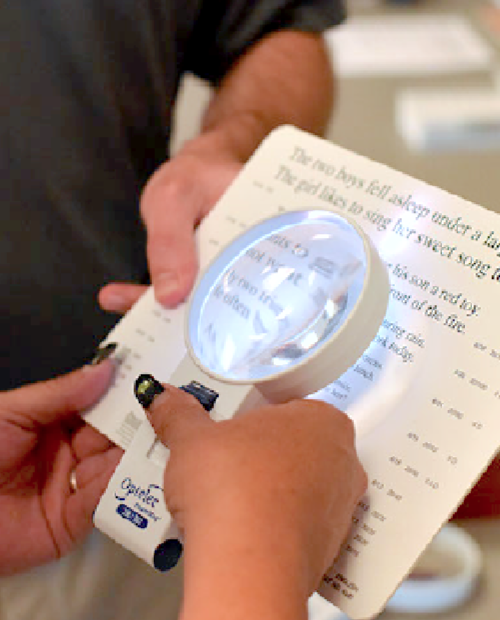What’s next when your vision changes
Maybe you’re having trouble seeing the TV from your favorite chair — or reading your Bible. Changes in vision can be frustrating and confusing. But it is possible to continue living independently and fully.
We know this because we live it every day. All associates at the Community Low Vision Center have some form of low vision, like age-related macular degeneration, glaucoma, cataracts or diabetic retinopathy — at all stages and levels of severity.
We’ve experienced the symptoms and frustrations you’re going through right now. We understand the worries and questions that can come with a low-vision diagnosis. And we can help you find the best ways to adjust and adapt.

Make an appointment

Take the next step today
The first step is easy. After you’ve talked to your eye doctor or health care provider, call one of the Community Low Vision Centers. We’ll ask a few questions to better understand your situation, and then we’ll set you up with an appointment.

Finding the right solution
When we meet, we’ll continue the conversation to learn more about your current lifestyle, the changes you’re experiencing and what you’re looking for. You’ll be able to try out adaptive devices as we work together to make a plan for adjusting and getting back to life as usual.
Moving forward
You might have questions about your device or about low vision in general after you get home. Our associates are ready to assist. We can connect you to others experiencing low vision through a variety of low vision support groups: for specific conditions, for using technology, for re-entering the workforce and more.
We’re here to help you
Products that make a difference
A hand-held magnifier for reading the news. A talking thermometer in the kitchen. Devices that adjust lighting, colors and contrast to make text easier to read.
There’s a whole world of resources out there beyond glasses and contact lenses. These adaptive devices are designed specifically for low vision, and they’ll help you return to the activities and independence you’re used to.
Support groups
If you’re looking to connect with others experiencing low vision, contact your local Community Low Vision Center to learn about our extensive range of support groups. We have groups for specific conditions, for using technology, for re-entering the workforce and more. And all groups are now online, so you can participate from wherever you are.
